Case Study: Directors' Duties in ASIC v Mariner Corporation Litigation
VerifiedAdded on 2021/06/17
|14
|891
|31
Case Study
AI Summary
This case study examines the Australian Securities and Investments Commission v Mariner Corporation Limited case, focusing on the alleged breaches of directors' duties under the Corporations Act 2001 (Cth). The case involves a public announcement of a takeover bid, and the ASIC contended that the directors violated duties of care and diligence (section 180(1)), misleading and deceptive conduct, and the rules regarding takeover bids. The court's decision hinged on the business judgment rule (section 180(2)), determining whether the directors acted reasonably, in good faith, for a proper purpose, and with informed decision-making. The analysis highlights the court's reliance on the business judgment rule, the evidence presented, and the implications of the decision in relation to the meaning of "reasonably believed" and the opportunity for directors to take calculated risks. The case study references supporting legal precedents and clarifies the application of the business judgment rule in the context of directors' duties and corporate law.
1 out of 14
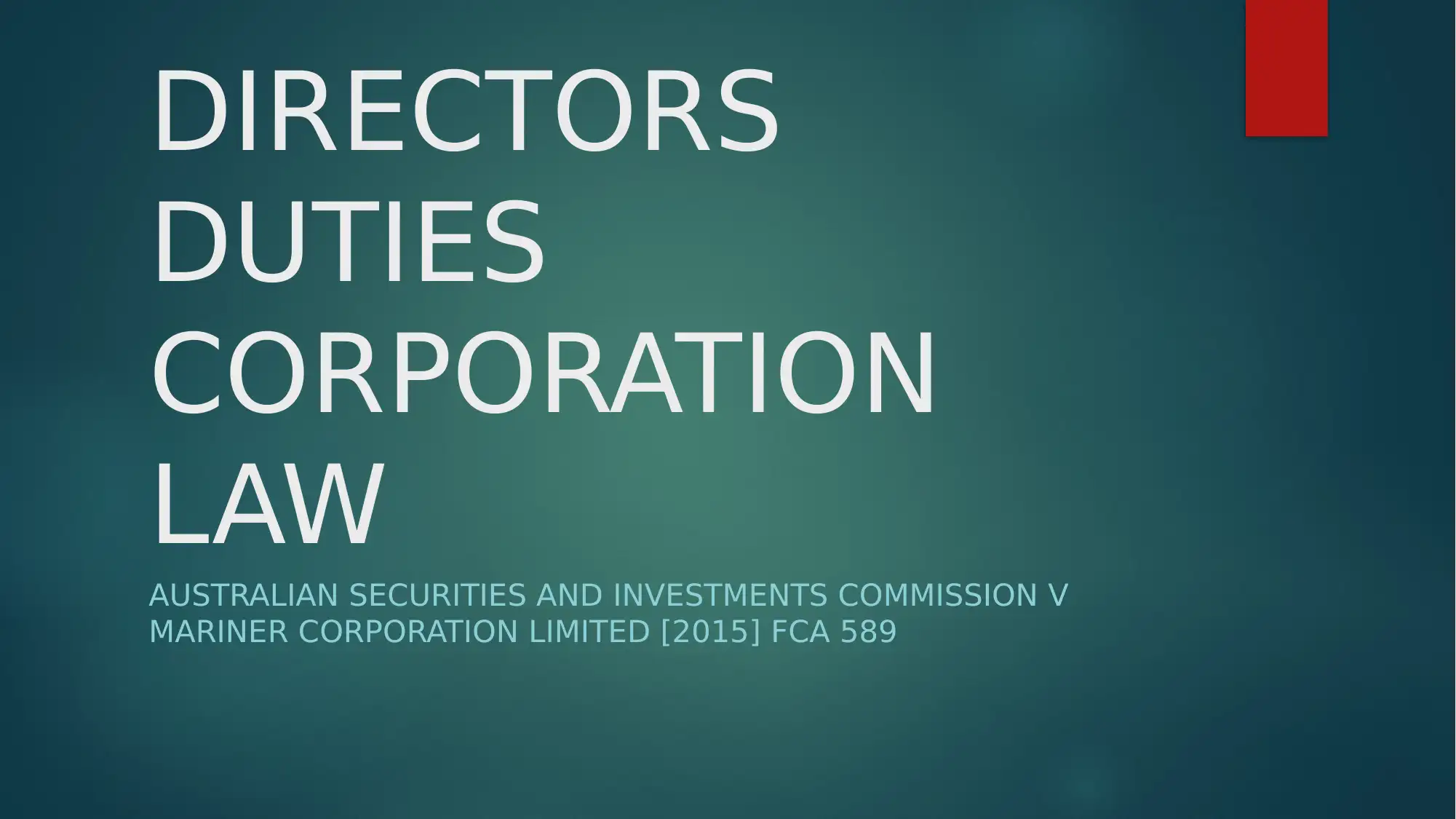
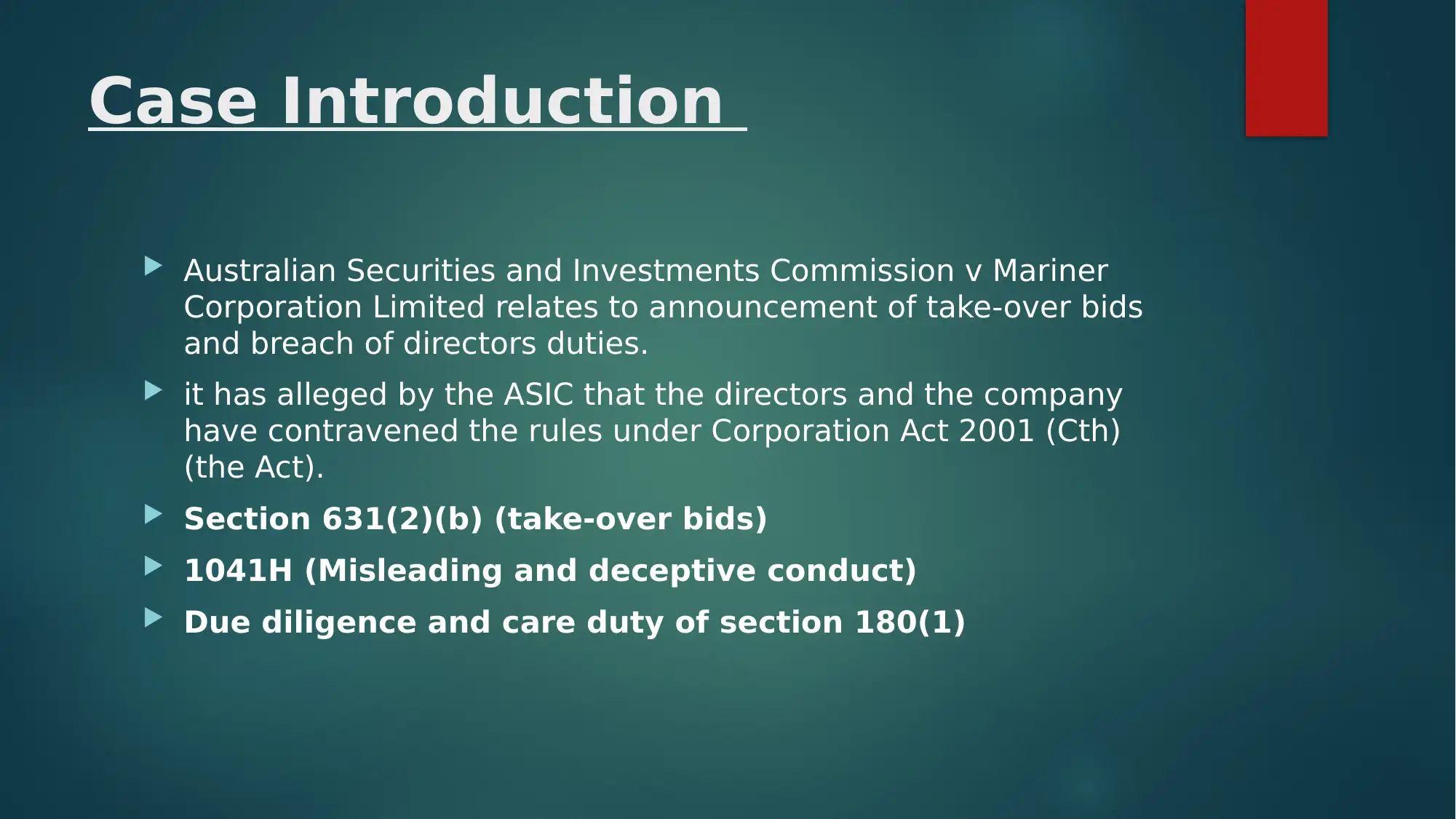
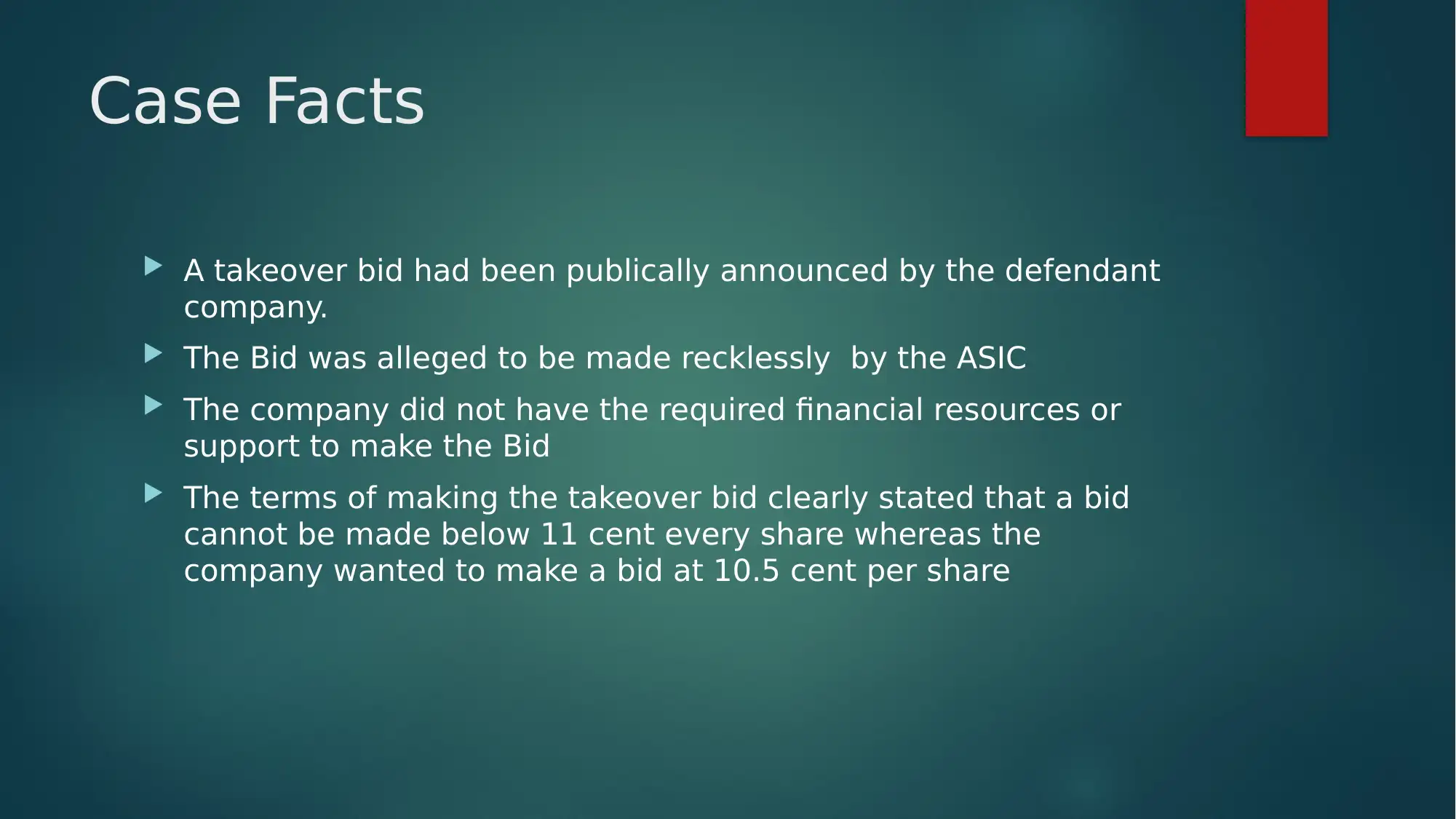

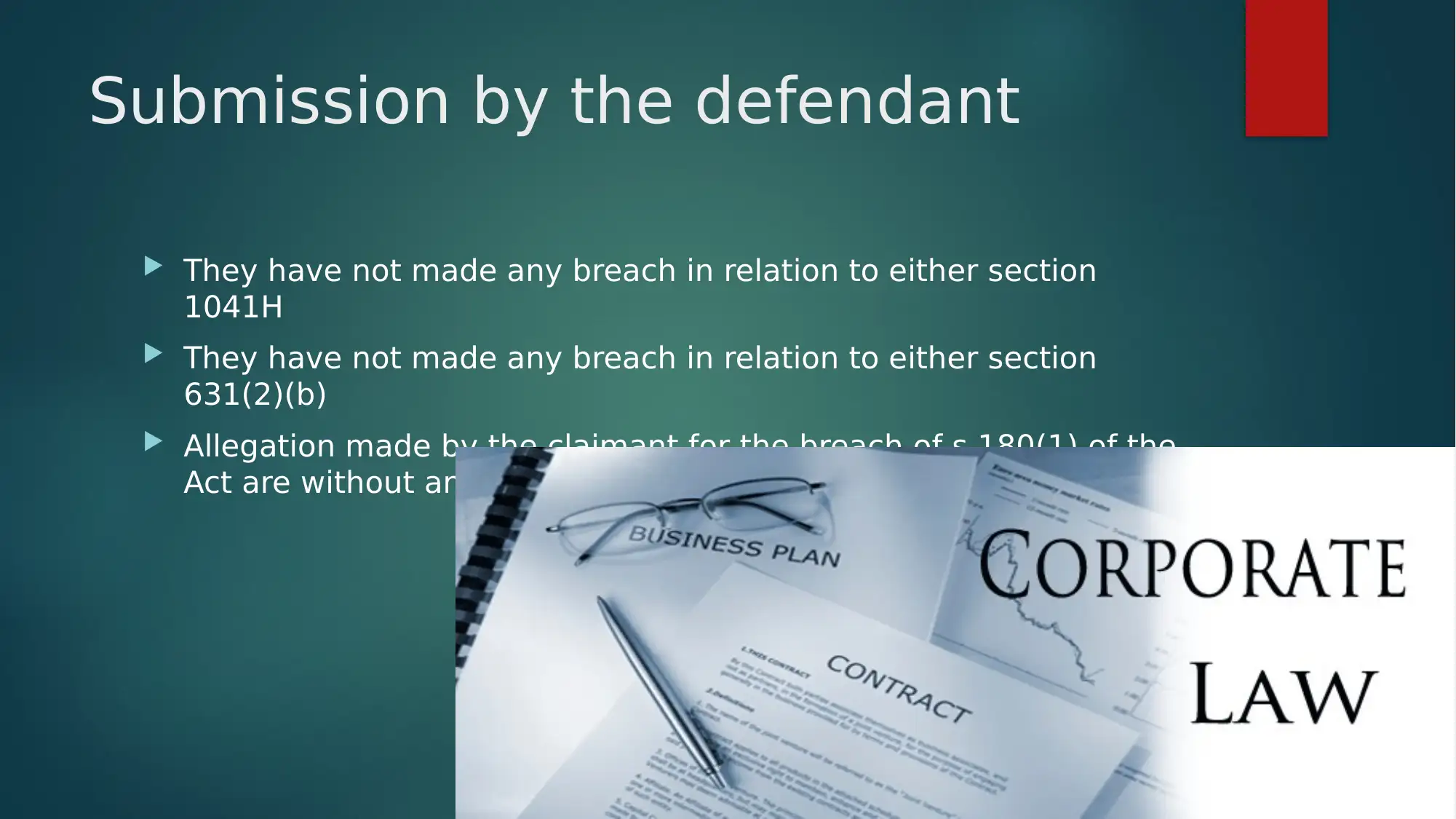
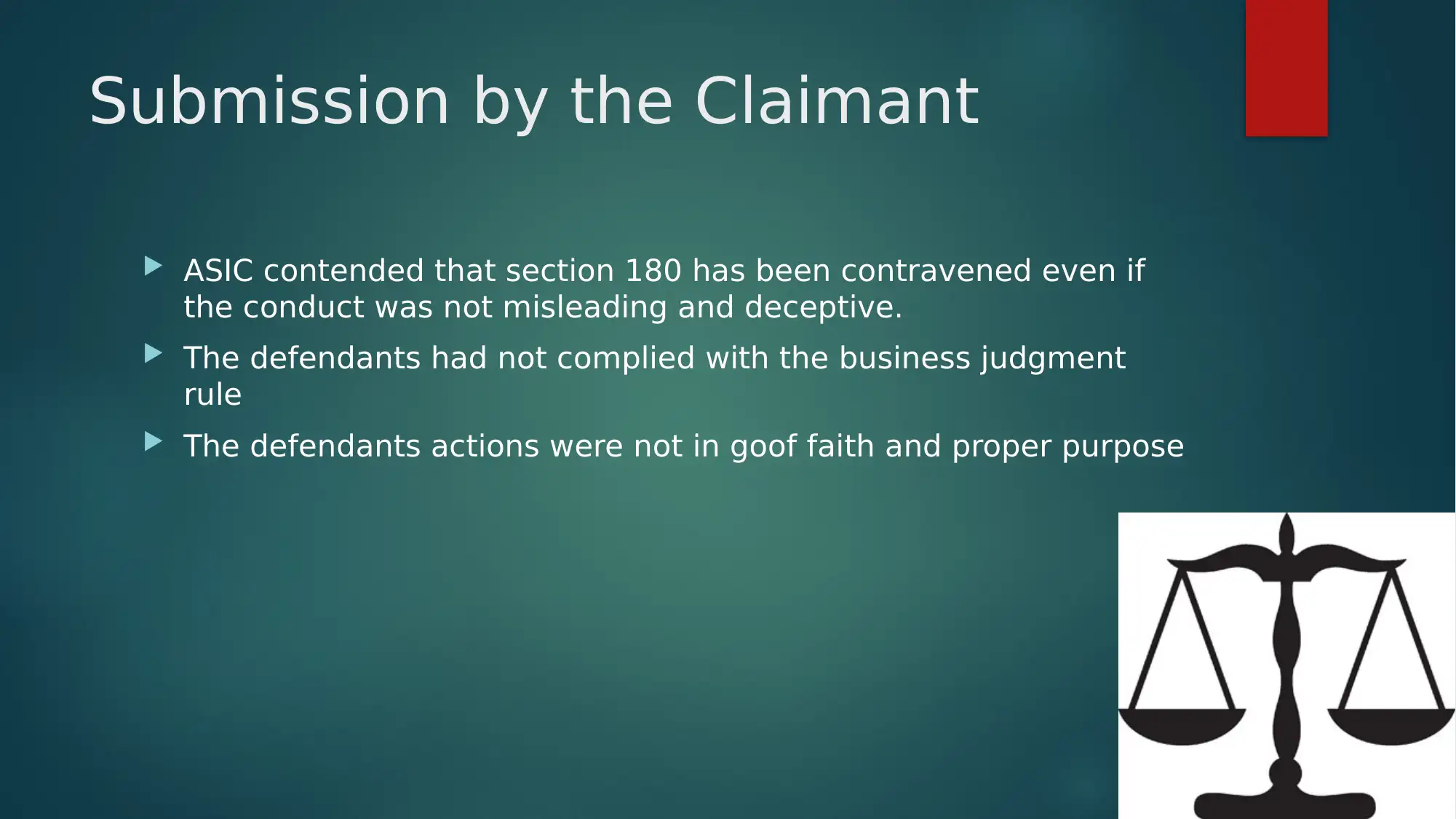
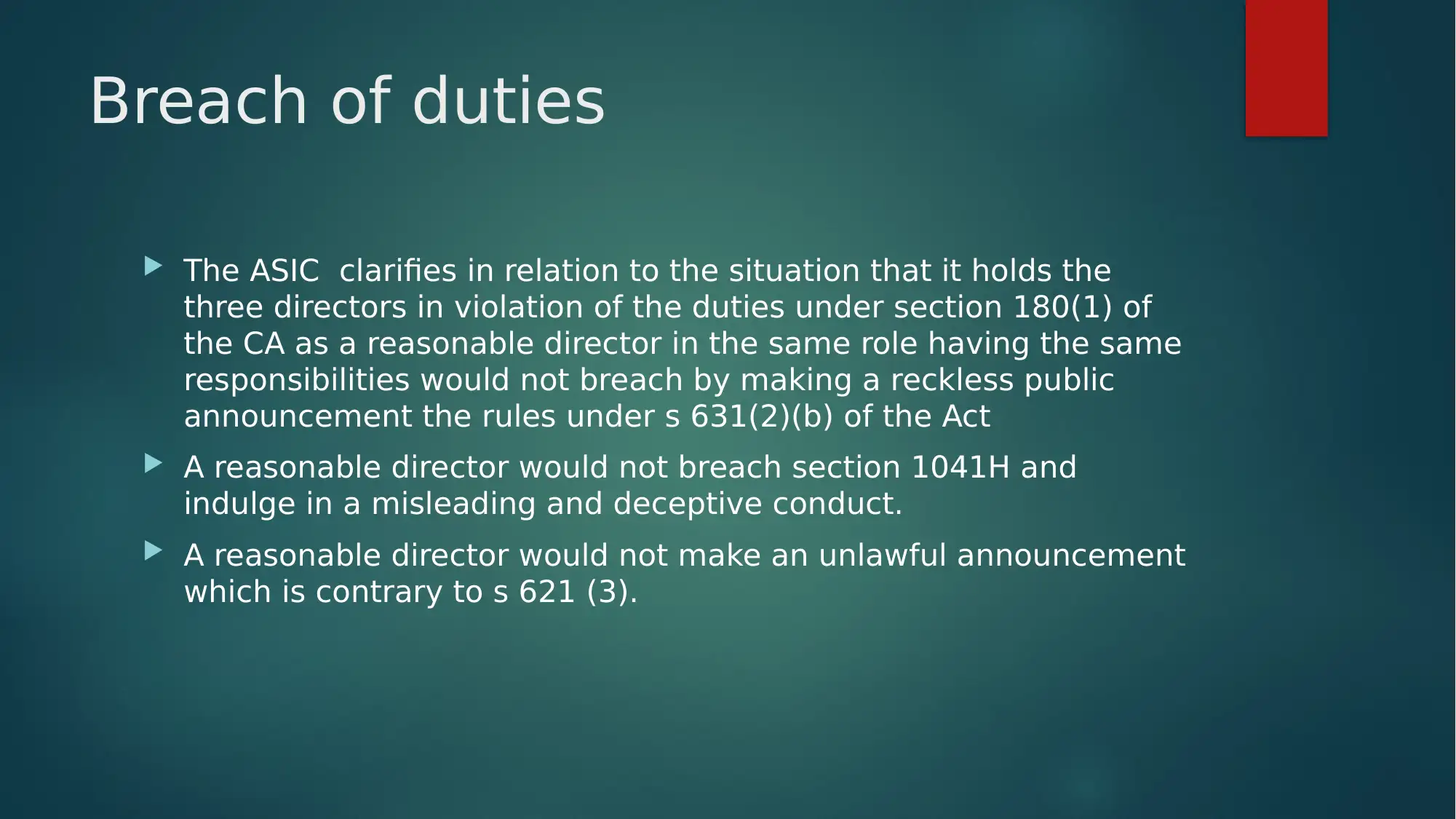
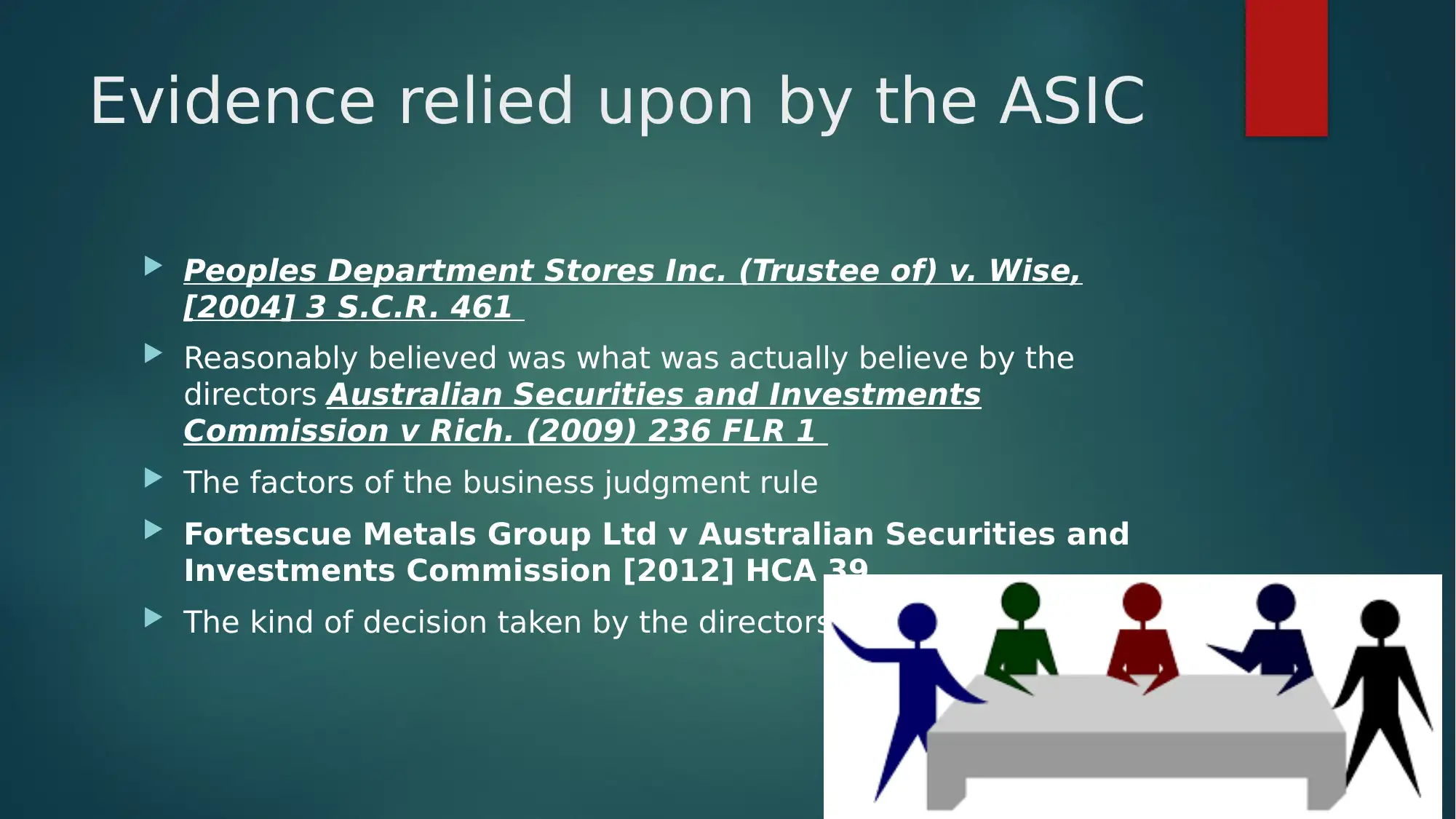
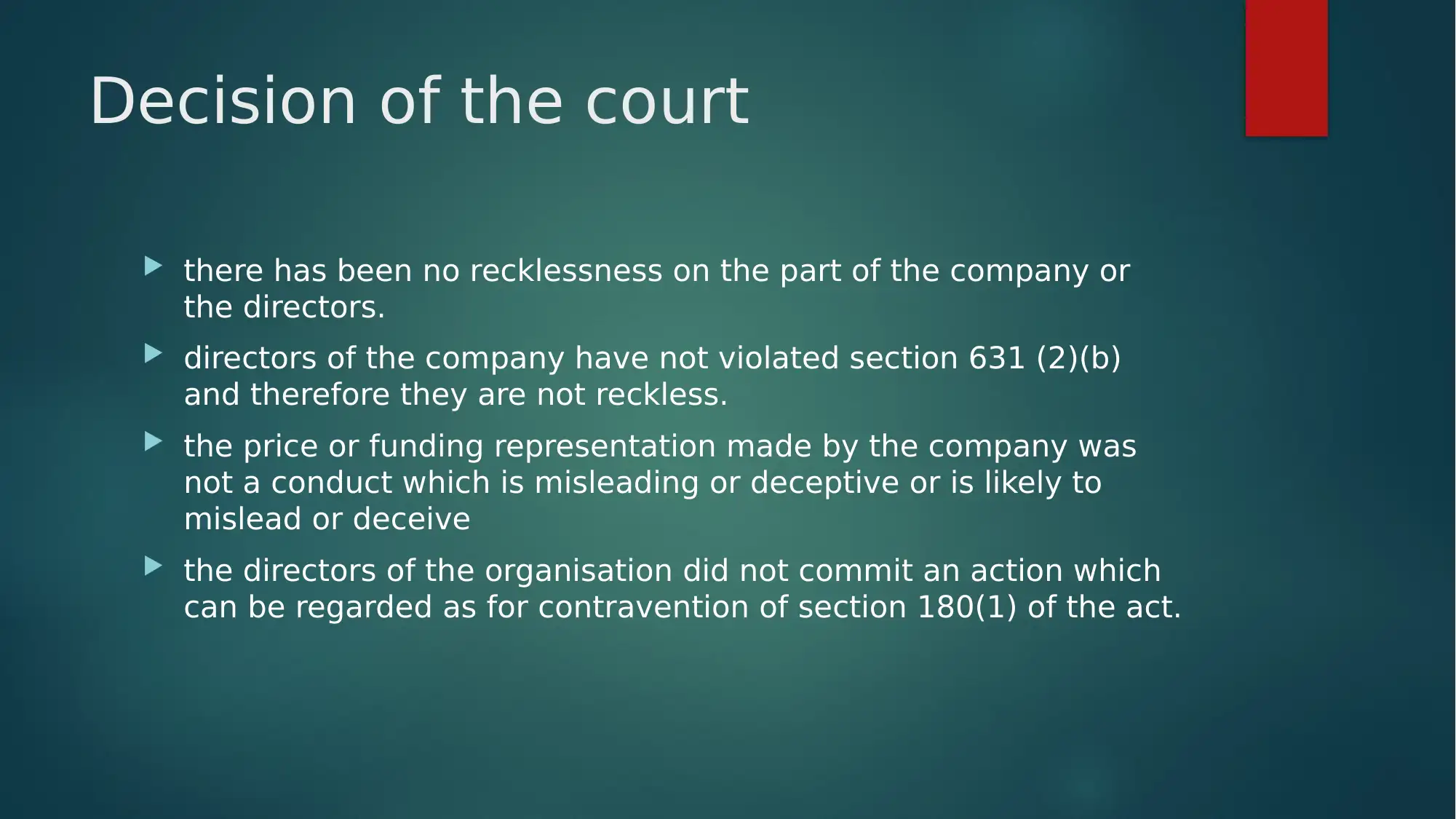
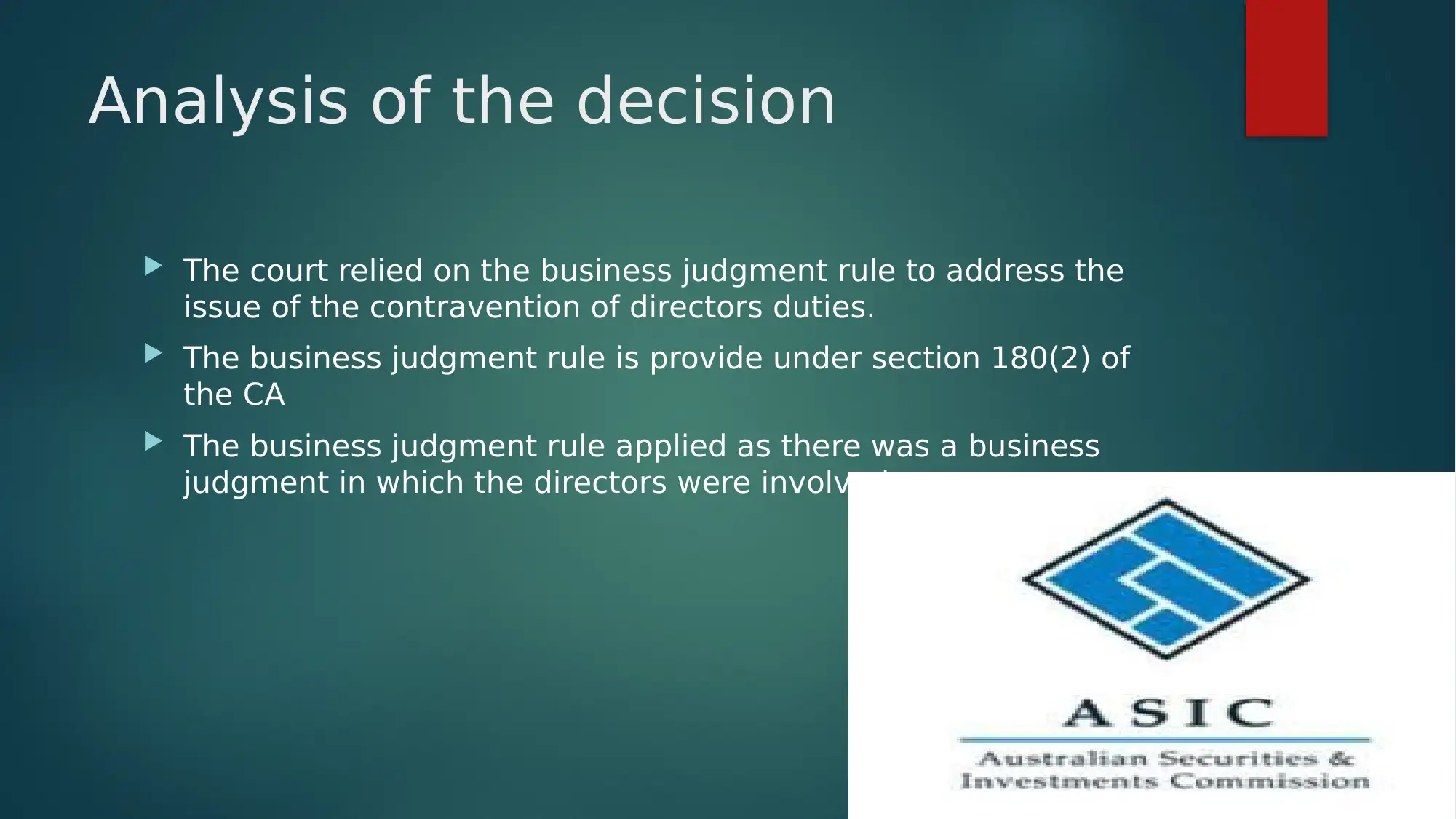
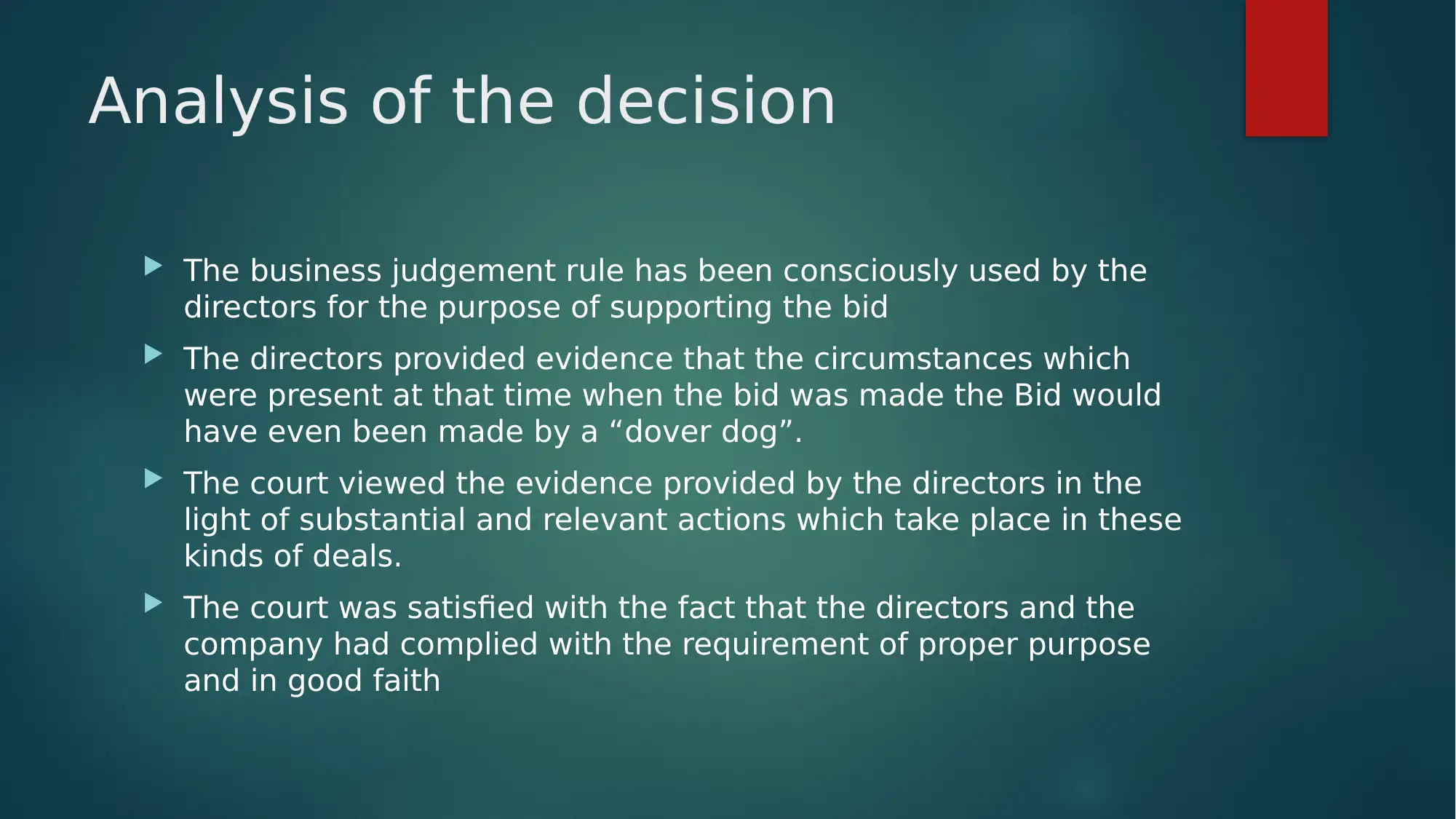
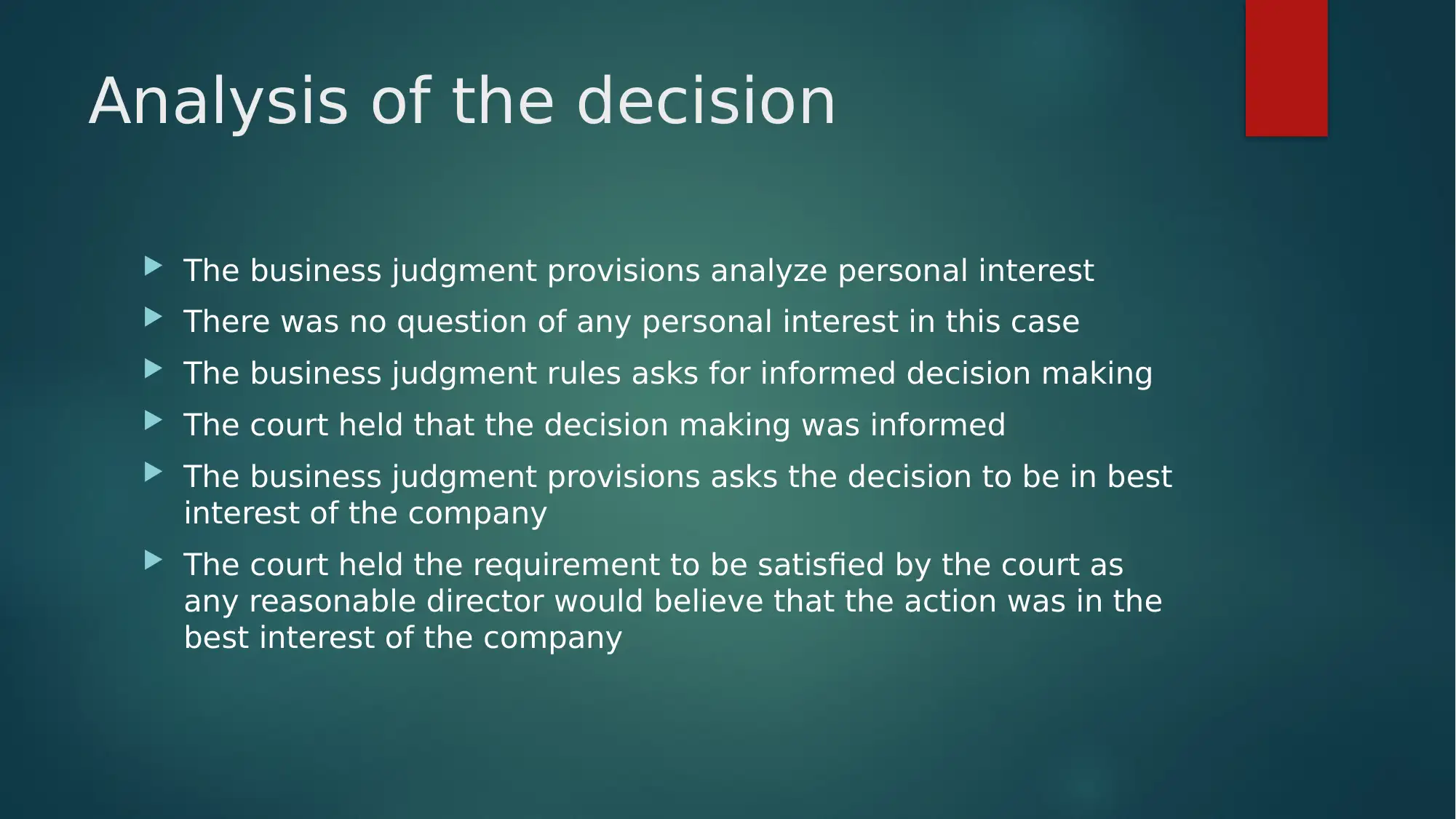
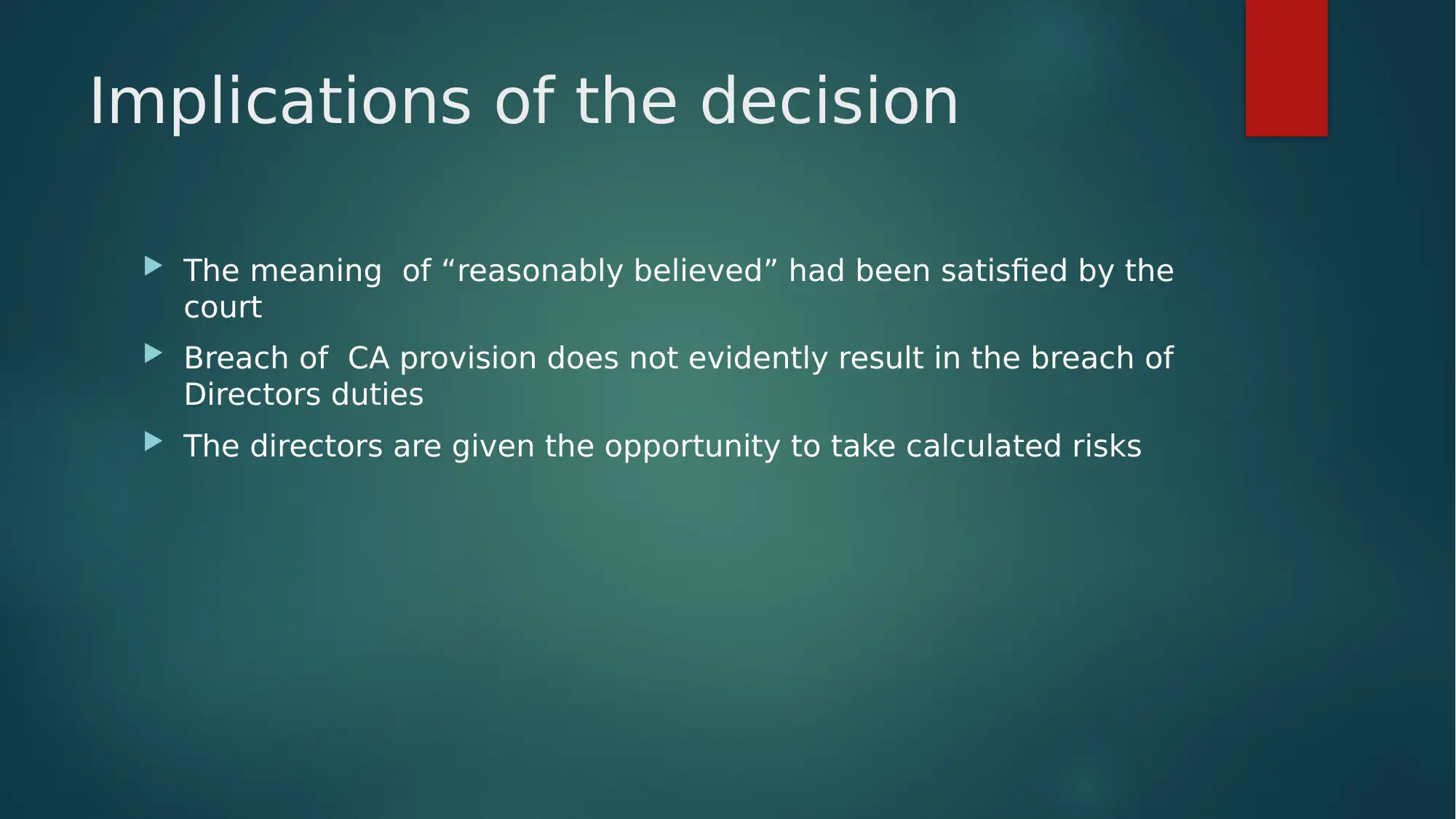



![Analysis of ASIC v Mariner Corporation Limited [2015] FCA 589 Decision](/_next/image/?url=https%3A%2F%2Fdesklib.com%2Fmedia%2Fimages%2Fqj%2F30a3ee1c1e57462ba500246341ad4101.jpg&w=256&q=75)


![[object Object]](/_next/static/media/star-bottom.7253800d.svg)